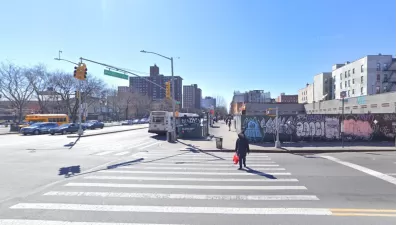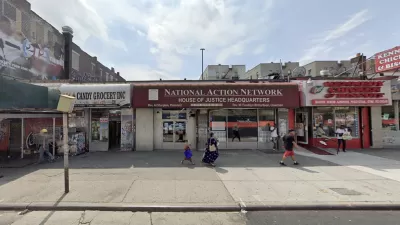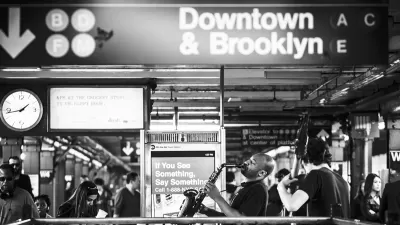Henry Louis Gates Jr. of Harvard University and The Root tells of the Virginia outpost that helped inspire the artists of the Harlem Renaissance of the 1920s.
Henry Louis Gates Jr.—the Alphonse Fletcher University Professor and founding director of the Hutchins Center for African and African American Research at Harvard University—begins the latest installment of the "Amazing Facts About the Negro" series with a history lesson about demographics of the Harlem Renaissance: "Nearly a century ago, out of the bitter soil of Jim Crow segregation and the First World War, sprang one of the most creative—and socially conscious—artistic flowerings in the history of the United States. The Harlem or 'New Negro' Renaissance of the 1920s was enabled by an unprecedented demographic shift."
Perhaps less known about the Harlem Renaissance, however, was its broad geographic reach, described in this article by the example of the Virginia home of poet Anne Spencer. "Fertile soil literally nurtured the growth of the poetic branch of the Harlem Renaissance, tended by the movement’s leading African-American female poet, Anne Spencer. Spencer’s enchanting house and garden in Lynchburg, Va., now a landmark museum, was black America’s version of Monet’s garden in Giverny, France. Anybody who was anybody in the black arts and letters scene made a point of stopping by to 'smell the roses' of her hand-crafted artistry instead of the usual foul air of Jim Crow segregated rooming houses and 'hotels.'"
In fact, "From the earth she tilled in central Virginia, and the generous hospitality she offered other black writers lodging in her salon-like home, Spencer encouraged and cultivated some of the Harlem Renaissance’s most profound and enduring poetry, much of it her own."
According to the article, "Anne and Edward Spencer’s garden home is a site of pilgrimage for writers, including the late Maya Angelou. Edankrall also is on the Virginia Landmarks Register and the National Register of Historic Places."
FULL STORY: In Whose Garden Did the Harlem Renaissance Grow?

Alabama: Trump Terminates Settlements for Black Communities Harmed By Raw Sewage
Trump deemed the landmark civil rights agreement “illegal DEI and environmental justice policy.”

Planetizen Federal Action Tracker
A weekly monitor of how Trump’s orders and actions are impacting planners and planning in America.

How Atlanta Built 7,000 Housing Units in 3 Years
The city’s comprehensive, neighborhood-focused housing strategy focuses on identifying properties and land that can be repurposed for housing and encouraging development in underserved neighborhoods.

In Both Crashes and Crime, Public Transportation is Far Safer than Driving
Contrary to popular assumptions, public transportation has far lower crash and crime rates than automobile travel. For safer communities, improve and encourage transit travel.

Report: Zoning Reforms Should Complement Nashville’s Ambitious Transit Plan
Without reform, restrictive zoning codes will limit the impact of the city’s planned transit expansion and could exclude some of the residents who depend on transit the most.

Judge Orders Release of Frozen IRA, IIJA Funding
The decision is a victory for environmental groups who charged that freezing funds for critical infrastructure and disaster response programs caused “real and irreparable harm” to communities.
Urban Design for Planners 1: Software Tools
This six-course series explores essential urban design concepts using open source software and equips planners with the tools they need to participate fully in the urban design process.
Planning for Universal Design
Learn the tools for implementing Universal Design in planning regulations.
Jessamine County Fiscal Court
Caltrans
Institute for Housing and Urban Development Studies (IHS)
City of Grandview
Harvard GSD Executive Education
Toledo-Lucas County Plan Commissions
Salt Lake City
NYU Wagner Graduate School of Public Service





























